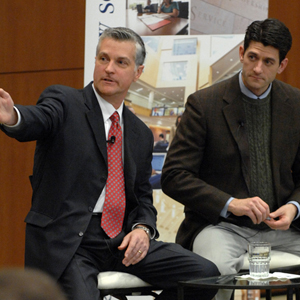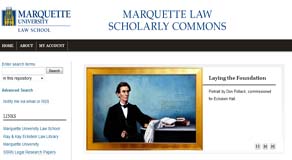I appreciate Gary Werkheiser’s comments on my earlier blog post, “Punishing Paterno.” Mr. Werkheiser’s observations can be found here. He is concerned that I too uncritically accepted the conclusions of the Freeh Report, the result of the investigation conducted by former FBI Director and federal judge Louis Freeh at the request of the Pennsylvania State University Board of Trustees.
There is no doubt that the NCAA penalty stage of the Sandusky-Paterno-Penn State affair developed with remarkable speed. It was that very fact that prompted me to publish the original blog post and to offer a similar recommendation on the SportsLaw Blog. I thought it was important to point out that punishments directed only at future football players and coaches would not adequately penalize those who were most responsible for the Penn State disaster. Nothing that Mr. Werkheiser mentions in his comment provides a reason to alter my original judgment regarding the culpability of Penn State Head Coach Joe Paterno.
Mr. Werkheiser, incidentally, is not just an ordinary Penn State alumnus, but is a leader of the Los Angeles Penn State alumni chapter and has been actively involved in fund-raising on behalf of Penn State and its Alumni Association. He earned a degree in accounting from Penn State in 1981, and, on his LinkedIn page, he describes himself as a “successful real estate professional, investment advisor and event producer.”
Mr. Werkheiser’s argument can be divided into three parts.
First, he insists that the Freeh Report contains no evidence that Joe Paterno was aware in 1998 of his friend Sandusky’s inappropriate conduct with young boys, and that the emails cited as evidence in the Freeh Report only contain references to “coach,” which Mr. Werkheiser suggests may refer to someone other than Joe Paterno.
Had Mr. Werkheiser read the Freeh Report more carefully, he would have noticed that the key May 5, 1998, email from Penn State Athletic Director Tim Curley to University Vice President Gary Schultz and University President Grant Spanier had as its subject, “JOE PATERNO.”
This email, which involved an incident in which a mother had complained about Sandusky’s inappropriate physical contact with her son in the Penn State locker room showers, contained the statement, “I have touched base with the coach. Keep us [emphasis added] posted.” (Freeh Report, p. 48) To suggest that “coach” might be a reference to an assistant coach for the Penn State woman’s volleyball team, or some other Penn State coach rather than Paterno, whose name appears on the email subject line, is simply silly.
Moreover, in a May 13, 1998, email from Curley to Schultz entitled “JERRY,” Curley wrote, “Anything new in this department? Coach is anxious to know where it stands.” (Freeh Report, p. 49) I suppose it is possible that by “Coach,” Curley was referring to the coach of the Penn State club bowling team, but I don’t think he was.
So, unless Curry was for some bizarre reason lying about having discussed the matter with Paterno, the two May emails indicate that Paterno had been informed of Sandusky’s alleged transgressions before May 5, 1998.
Secondly, Mr. Werkheiser also points out, correctly, that no criminal charges were filed against Sandusky as a result of the 1998 incident. Apparently, the state officials who investigated the complaint concluded that the lack of evidence that Sandusky, while cavorting in the nude with the 11 year-old boy, had touched the boy’s genitals made it unlikely that a criminal conviction could be obtained. (Freeh Report, pages 47-50.)
Whether or not this conclusion on the part of public officials was legitimate, or whether it was part of a widespread public effort to protect the reputation of the Penn State football program is still an unanswered question. However, the decision not to prosecute in no way relieved Joe Paterno of his moral and ethical duty to ensure that his coaches were not exploiting their connections to Penn State to the detriment of minors.
Even if Mr. Werkheiser’s arguments that the Freeh Report does not establish that Paterno had knowledge of the 1998 incident were correct, that fact would only push the date of Paterno’s culpability forward to 2001, when he clearly failed to take meaningful action upon evidence of continued abuses of young boys by Sandusky.
Finally, Mr. Werkheiser takes Judge Freeh to task for failing to interview Joe Paterno, Tim Curley, Gary Schultz, assistant coach Mike McQueary, Penn State Police Chief Harmon, and the Centre County district attorney. Again, had Mr. Werkheiser read the Freeh Report more carefully, he would have realized that Freeh’s investigators actually attempted to interview all of these individuals, except for the district attorney from 1998, who was already dead at the time the investigation began. (Freeh Report, p. 46.)
Paterno initially declined the interview request of the investigators, although he agreed to speak with them at a later time. Of course, his subsequent death made that impossible. (Freeh Report, p. 12.)
Both Curley and Schultz, who were under indictment for criminal offenses related to the Sandusky cover-up, refused to speak to the investigators, citing advice of counsel. (Sandusky himself refused to be interviewed for similar reasons.) McQueary and Police Chief Harmon were not interviewed, but only because of the Pennsylvania Attorney General’s request that the two not be questioned because of the possibility that criminal charges might be filed against them as well. (Freeh Report, p. 12.)
Given the Fifth Amendment and the priority of state criminal proceedings over administrative investigations, Freeh and his team had no opportunity to interview the individuals cited by Mr. Werkheiser. Consequently, Mr. Werkheiser’s criticism of Judge Freeh on these grounds is either uninformed or disingenuous.
I understand that Mr. Werkheiser bleeds Penn State blue and that it can be emotionally wrenching to learn that a man that you have idolized all your life was capable of serious transgressions. However, even the most resolute Penn State fan should know that ad hominem attacks and misstatements of fact are not going to clear the name of Joe Paterno.
I do not believe that Joe Paterno was an evil man, although I think the proclamations of his saintliness in his lifetime were a bit exaggerated. (After all, how many actual saints earned millions of dollars on their way to canonization?) In a very human way, Paterno fell victim to the worship of an idol of his own creation—the Penn State football program and his vaunted “Joe Pa” image. Somewhere along the way, he unfortunately chose the protection of the reputation of his program and his image over his Christian obligation to care for those who could not protect themselves.
The Freeh Report can be found here.
 First of all, I have to admit that my prediction was wrong. I predicted that Paul Ryan would not be the Republican nominee for Vice President in 2012. My reasoning was simple: I didn’t believe that Mitt Romney would risk being overshadowed by his running mate on questions of economic policy. However, Mitt Romney did indeed choose Paul Ryan as his running mate late last Friday, thus demonstrating that he is comfortable running for President on a fiscal blueprint that is known as “The Ryan Plan” rather than “The Romney Plan.”
First of all, I have to admit that my prediction was wrong. I predicted that Paul Ryan would not be the Republican nominee for Vice President in 2012. My reasoning was simple: I didn’t believe that Mitt Romney would risk being overshadowed by his running mate on questions of economic policy. However, Mitt Romney did indeed choose Paul Ryan as his running mate late last Friday, thus demonstrating that he is comfortable running for President on a fiscal blueprint that is known as “The Ryan Plan” rather than “The Romney Plan.”
